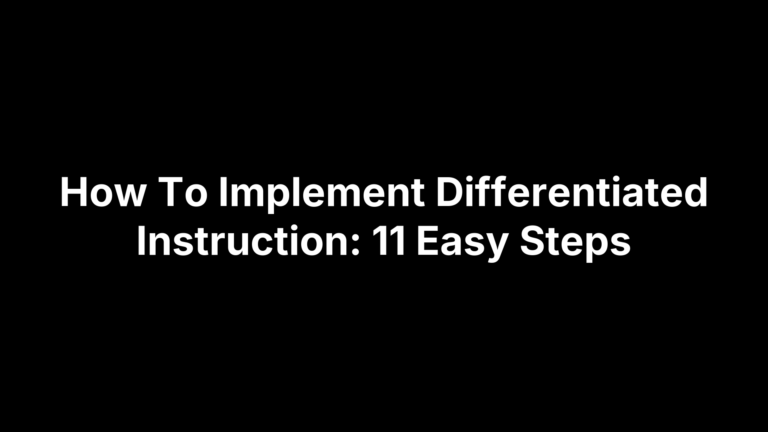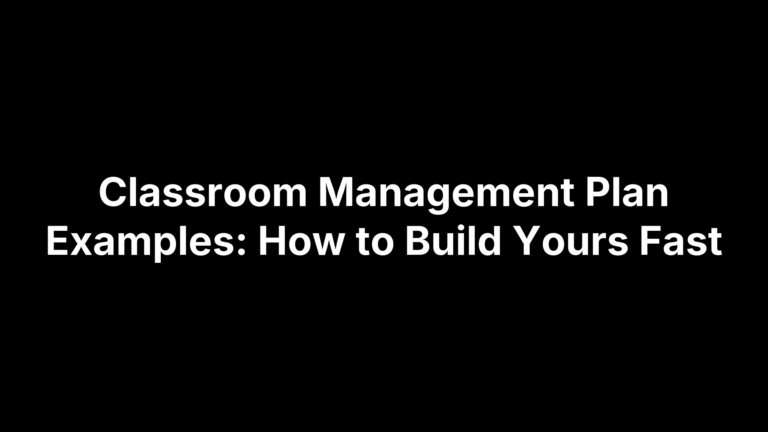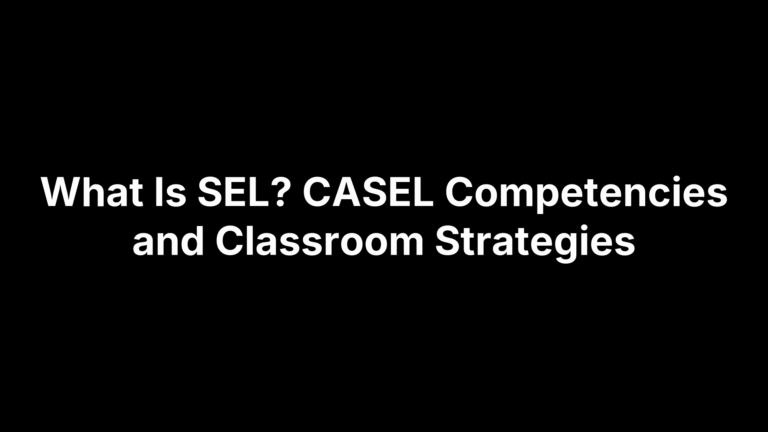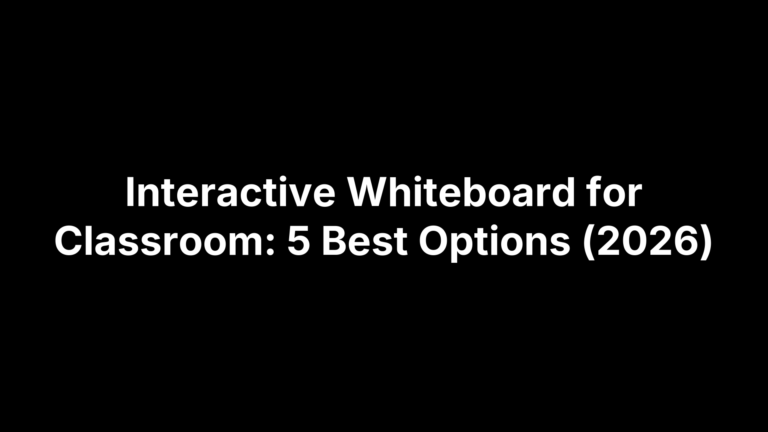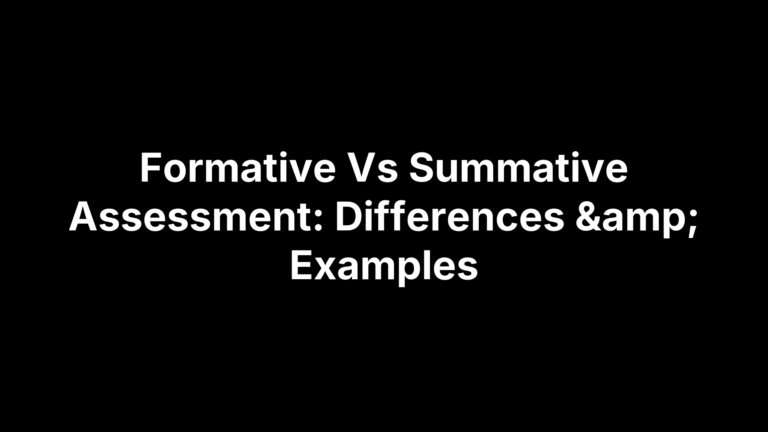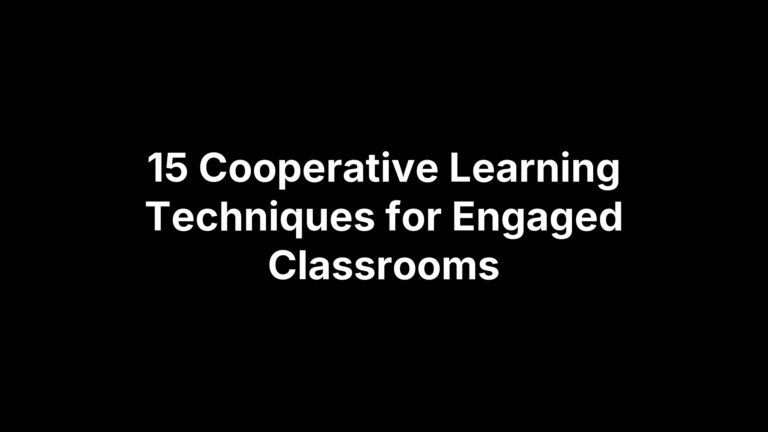20 Teacher Professional Development Resources for Flexible, Affordable Growth
Between grading essays, steering class discussions, and answering lunchtime questions, professional development hours can feel like one more spinning plate. Yet state mandates and personal growth goals don’t pause just because your planning period vanished. What teachers really need is PD that slots into a Tuesday night after dinner or a Saturday morning before soccer practice—without raiding the classroom budget.
That’s exactly what this curated guide delivers. We’ve gathered 20 teacher-approved resources—from bite-sized webinars to full graduate courses—so you can zero in on the format, price point, and credit option that match your goals. For each entry you’ll see what it offers, who benefits most, how much it costs, whether certificates are included, and a quick-start tip to keep the paperwork simple. Scan the list, pick your favorites, and get back to what matters: bringing fresh ideas to your students. Your PD calendar will thank you, and so will your stress level.
1. The Cautiously Optimistic Teacher
Homegrown by practicing educators, The Cautiously Optimistic Teacher flips daily classroom hurdles into ready-made solutions you can try during tomorrow’s prep period.
Why it’s worth your time
Each blog post, template, and AI widget is classroom-tested with real students, removing the guesswork that sometimes plagues “research-only” PD. You get a rare blend of instructional design support and career coaching in one tab.
Signature PD tools and resources to explore first
- Differentiated Instruction Helper (AI)
- Worksheet Maker—custom printables in minutes
- Brain Builders Workshop for growth mindset
- Literature unit plans (e.g., Mockingbird)
- Free weekly newsletter with PD prompts
Getting started and logging PD hours
Create a free login, bookmark favorite tools, and add quick reflections or downloaded certificates to your district’s informal PD log.
2. National Education Association (NEA) Professional Learning Portal
NEA’s Professional Learning Portal is the union’s one-stop shop for teacher professional development resources, mixing bite-sized learning with deeper credentials you can stack toward salary advancement.
Overview of offerings
- 175+ self-paced courses, webinars, and podcasts
- Research-based micro-credentials spanning equity, content pedagogy, and classroom management
- Live virtual institutes led by practicing educators
Best for
Union members—or any teacher—who want nationally recognized badges tied to peer-reviewed evidence and aligned with district evaluation rubrics.
How to earn and document credits
- Select a micro-credential.
- Upload artifacts (lesson plan, reflection, student work).
- Submit for expert review; revisions allowed.
- Download the digital badge plus PDF certificate and forward it to HR for clock-hour approval.
3. Teaching Channel
Teaching Channel removes the “I wish I could see that in action” barrier by streaming real K–12 classrooms straight to your laptop. Search by grade, standard, or strategy and you’ll land on concise clips that turn abstract pedagogy into concrete moves you can copy tomorrow.
Video-rich learning library
More than 1,600 annotated videos pair teacher narration with on-screen pause points and discussion prompts, making every viewing session feel like a guided observation.
Popular PD formats
- 1-hour video studies with built-in reflection questions
- 3-credit, graduate-level courses for salary advancement
- Team subscriptions that unlock shared workspaces and data dashboards
Classroom application tips
Use a simple “Pause → Prompt → Reflect” routine: stop the video at each marker, jot how you’d adapt the move, then draft a quick lesson tweak to log toward your teacher professional development resources record.
4. edWeb.net
If you like your PD live, interactive, and free, edWeb.net earns a spot on any teacher professional development resources list.
What sets it apart
Daily webinars feature classroom voices plus researchers, with live chat and polls for real-time answers.
Community and networking features
Join subject-specific communities to swap resources, attend pop-up events, and sync sessions to Google Calendar.
Certificate retrieval and record keeping
Certificates appear in your dashboard minutes after a webinar; download the PDF and upload to your district log.
5. PBS LearningMedia Professional Development
If your students know PBS shows by heart, you can gain just as much. PBS LearningMedia’s professional development portal turns the network’s award-winning productions into bite-sized teacher training.
High-quality, media-rich coursework
Self-paced modules cover digital citizenship, media literacy, and tech-integration using the same clips your students love; each ends with a short reflection quiz.
Built-in classroom resources
Lesson pages pair teacher notes with standards-aligned plans and closed-captioned videos. Save favorites for quick PD documentation.
Cost and credit
Most modules are free and printable; some partner with universities for optional graduate credit at a modest fee.
6. Common Sense Education Professional Learning Network
Common Sense Education is more than app reviews; it’s a free professional learning network that helps teachers embed safe, responsible tech use into daily lessons—no extra prep time required.
Digital citizenship focus
Minute-long videos, turnkey slide decks, and student-friendly quizzes let you introduce privacy, media balance, and online kindness without overhauling your curriculum.
Free teacher certification
Complete three self-paced modules, teach one digital citizenship lesson, and submit a short reflection. Common Sense then emails a printable certificate plus shareable badges.
Ideas for staff-wide PD
Run an “Appy Hour”: staff rate apps with the Common Sense rubric, trade lesson hooks, and log the PD minutes.
7. Google for Education Teacher Center
Google for Education’s Teacher Center corrals tutorials, practice files, and certifications into one tidy hub, making it a go-to among free teacher professional development resources.
Skill paths and certifications
Start with Level 1 and Level 2 educator certifications, then add Trainer, Coach, or Innovator credentials for leadership roles and stipends.
Free self-paced units
Each certification is backed by bite-size lessons—search, Drive, Classroom, Meet—complete with quizzes and estimated times so you can slot them into planning periods.
Exam prep tips
Use practice scenarios in the Teacher Center, set a 3-hour timer like the real test, and memorize keyboard shortcuts (Ctrl+Shift+T, Shift+Z) to shave off precious seconds.
8. Microsoft Learn for Educators
Running a Windows campus? Microsoft Learn for Educators turns curious teachers into confident users with short lessons, sandbox labs, and ready-to-share slide decks.
Tech integration modules
Browse bite-size learning paths on Teams meetings, OneNote Class Notebook, Reading Progress, and AI-powered Bing Chat—each ending with a knowledge check.
Earning Microsoft Educator badges
Complete any module, score 80 % on the quiz, and a digital badge lands in your profile; stack 25 hours to unlock Microsoft Innovative Educator (MIE) status.
Accessibility spotlight
Try Immersive Reader, Translator, and Read Aloud during the course demos, then roll them into tomorrow’s lesson to boost equity while logging PD minutes.
9. Coursera Teacher Professional Development Courses
Coursera sits at the crossroads of higher ed prestige and teacher-friendly flexibility, making it a staple on any shortlist of teacher professional development resources.
University-backed content
Courses come straight from institutions like Johns Hopkins, Arizona State, and the University of London, so every video, reading, and peer-graded project carries academic weight your district will respect.
Flexible pacing and pricing
Audit most classes free, binge them on a snow day, or chip away during lunch. Need proof? Opt for the paid certificate or subscribe monthly to complete an entire Specialization.
Course recommendations
- Teaching & Learning in the Diverse Classroom
- AI for Everyone (great primer before diving into classroom AI)
- Learning How to Learn—metacognition strategies students can use tomorrow
10. edX Online PD for Educators
edX brings Ivy-League and international university courses to your sofa, letting teachers sample—or dive deep into—research-backed content without commuting or long-term tuition bills.
Graduate-level rigor
Browse MicroMasters and Professional Certificate series in instructional design, leadership, and STEM; each sequence mirrors graduate coursework with peer discussion, applied projects, and professor feedback.
Credit and CEU options
Download a verified certificate, then petition your district or partnering universities for salary lane movement or continuing-education units; many states already pre-approve edX.
Budget-friendly hacks
Select “Audit” to access videos free, apply for financial aid on certificate tracks, and watch for periodic “Verified Learner” coupons to shave 90 % off enrollment fees.
11. FutureLearn Teaching Courses
FutureLearn opens a window to best practice, packaging it into teacher professional development resources you can finish during coffee breaks.
Global classroom perspective
Taught by UK universities and NGOs, topics span global citizenship, SEL, phonics, and climate-smart teaching.
Social learning model
Built-in discussion threads let you compare notes with peers, ask mentors questions, and crowdsource tweaks.
Short-course pathways
Most courses run two to four weeks; stack three ExpertTracks to earn a teaching diploma.
12. Khan Academy Teacher Training & Mastery Courses
Khan Academy isn’t just for students—it delivers bite-size trainings that show teachers how to harness its mastery system, data dashboards, and other free teacher professional development resources in minutes.
Teacher dashboard tutorials
Step-by-step videos walk you through creating classes, assigning skills, and interpreting the color-coded mastery map.
PD course lineup
- Getting Started with Khan for Teachers
- Growth Mindset conversations
- AP/College Board alignment workshops
Implementation cheatsheet
Create student accounts, assign the first mastery goal, and schedule a five-minute data check during planning to log PD evidence.
13. ASCD Professional Learning Community
ASCD has been shaping instructional practice for decades, and its Professional Learning Community gives teachers an all-access pass to research that actually translates into student growth.
Evidence-based frameworks
Study ready-made modules on whole child development, differentiated instruction, and formative assessment—each mapped to ASCD’s evidence-based Impact Cycle.
Virtual and in-person options
Mix on-demand webinars with regional conferences or the flagship annual meeting, then debrief in PLC discussion boards for peer feedback.
Membership perks
Joining unlocks unlimited article downloads, Educational Leadership magazine print issues, 20 % book discounts, and automatic credit tracking inside your personal dashboard.
14. Learning Forward Resources
Learning Forward, the professional association behind the widely adopted Standards for Professional Learning, turns peer-reviewed research into ready-to-use PD materials.
Standards for Professional Learning
The seven standards—equity, curriculum, professional expertise, etc.—provide a quick litmus test for any workshop or coaching cycle.
Toolkits and coaching guides
Grab the free Redesign PD workbook, PLC facilitation kit, and sample coaching logs packed with reflection prompts.
District-wide impact
Use the site’s gap-analysis form to align campus goals, document evidence, and impress the school board at budget time.
15. TeachersFirst Professional Resources
TeachersFirst is a PD secret weapon, pairing plug-and-play lessons with interactive webinars that simplify credit tracking.
Classroom-ready activity banks
Search 12,000+ vetted lessons by grade or standard; teacher notes flag pitfalls and quick tweaks.
Live OK2Ask webinars
Free OK2Ask webinars award certificates; finish the live quiz and download proof minutes after closing.
Personal learning paths
Bookmark favorites, tag goals, and let TeachersFirst suggest a custom playlist for ongoing teacher professional development resources.
16. U.S. Department of Education Professional Development Resources
Run by the agency that sets policy, the ED website curates no-cost, evidence-based PD you can cite confidently.
Federal initiatives and toolkits
Explore Teach to Lead playbooks, the English Learner Toolkit, and STEM Innovation Network guides, packed with rubrics, videos, and printable checklists.
Grant-funded modules
Because every module is supported, materials align to ESSA and Universal Design, a plus when requesting district credit.
Navigating the site
Filter by topic, grade, or format, download PDFs, then add a quick reflection to your PD log and you’re done.
17. Waterford.org Free PD Webinars
Waterford.org’s free webinar series is an early-literacy goldmine, making it one of the quickest teacher professional development resources to squeeze between dismissal and dinner. Sessions stream live twice a month and hit the archive the very next day, so replaying on your own schedule is easy.
Early literacy concentration
Topics zero in on phonemic awareness, parent partnerships, and Tier-2 reading intervention—each session led by veteran classroom teachers who share ready-to-use strategies.
Certificates and CEUs
Complete the hour and a PDF certificate auto-emails; several states already pre-approve Waterford for CEUs, minimizing paperwork.
Suggested follow-up activities
Use their station template for a 4-week literacy cycle.
18. Your Regional Education Service Agency (RESA) Workshops
Regional Education Service Agencies (RESAs) deliver hyper-local PD that hits state standards without travel headaches.
What RESAs offer
- Budget-friendly workshops on curriculum alignment, edtech, and assessment
- On-site coaching and demonstration lessons from regional specialists
- Cooperative purchasing keeps graduate credit fees low
Finding sessions near you
Search your state DOE calendar or RESA website and register early; summer seats vanish fast.
Maximizing on-site PD days
Carpool with colleagues, build a cross-district PLC at lunch, and swap slide decks afterward for extra impact—and easy hour tracking.
19. Educational Podcasts for Self-Paced PD
Podcasts turn commute time into on-demand PD: slip in earbuds, absorb proven strategies, and pause whenever duty calls.
Top podcast picks
- Cult of Pedagogy – pedagogy & edtech
- Teacher Toolkit – quick classroom hacks
- Truth for Teachers – mindset & productivity
- Shifting Schools – future-ready instruction
How to turn listening into credit
Keep a running note with episode title, timestamped takeaway, and planned classroom use to satisfy PD logs.
Commuter-friendly learning strategy
Two episodes and a 10-minute reflection equal about one informal PD hour—perfect for weekly drives.
20. Twitter & LinkedIn Professional Learning Networks (#EdChat & Beyond)
Used wisely, Twitter and LinkedIn function like a round-the-clock faculty lounge—free, fast, and full of colleagues ready to swap ideas.
Real-time collaboration
- Hit weekly #EdChat, #TLAP, or #K12ArtChat for rapid Q&As.
- Join ISTE or Educators’ Network groups on LinkedIn.
Building a tailored PLN
- Set up a classroom-only profile.
- Follow 20 trusted voices.
- Create hashtag lists for focus.
Etiquette and time-management tips
- Scroll 10 minutes max, timer on.
- Mute distractions, bookmark gems.
- Add reflection notes for PD credit.
Putting Your PD Plan Into Action
Skimming lists is easy; turning ideas into growth takes a bit of structure. Start small—two or three teacher professional development resources that genuinely fit your teaching focus and time budget are plenty.
- Block it out: Drop webinar dates, course deadlines, or reading goals into your digital calendar exactly as you would a parent conference.
- Set a target: “Try one new feedback strategy by October” or “Earn 15 micro-credential hours before spring break” gives your PD a finish line.
- Capture evidence: Keep a single doc with certificates, lesson tweaks, and quick reflections on what happened when you applied the learning. That running narrative is gold for evaluations and recertification forms.
Revisit the plan each quarter—add, drop, or swap resources as student needs evolve. Ready for weekly nudges and fresh tools? Subscribe to the The Cautiously Optimistic Teacher newsletter and let timely PD ideas land in your inbox automatically.
